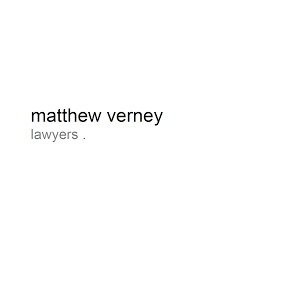Best Foreclosure Lawyers in Devonport
Share your needs with us, get contacted by law firms.
Free. Takes 2 min.
Free Guide to Hiring a Real Estate Lawyer
List of the best lawyers in Devonport, Australia
About Foreclosure Law in Devonport, Australia
Foreclosure involves a lender taking back ownership of a property due to the borrower's failure to meet mortgage payments. In Devonport, Australia, foreclosure laws are generally governed in line with the National Consumer Credit Protection Act of 2009. The process is initiated when a lender files a default notice after a borrower fails to make loan repayments. If the borrower does not complete repayments within the stipulated time, the lender can take action to possess and sell the property.
Why You May Need a Lawyer
A lawyer can provide expert advice and help navigate the complex legal aspects of foreclosure. They can assist in understanding the options available to you, such as repayment arrangements, refinancing and selling the property. Legal help is particularly useful in negotiating with lenders, or when contemplating the threat of bankruptcy. A lawyer can also help in identifying potential defenses and guide you through court proceedings if you choose to contest the foreclosure.
Local Laws Overview
In Devonport, a lender must wait at least 30 days after you default on your mortgage before they can start legal proceedings. If you are served with legal documents, you will have 28 days to lodge a defense if you wish to contest the foreclosure. If you fail to do so, the court may issue a judgement without your input. The lenders can then take action to possess and sell the property. The law also requires lenders to negotiate with borrowers in good faith to agree on a repayment plan before they can proceed with foreclosure.
Frequently Asked Questions
1. How long will a foreclosure process take?
Typically, a foreclosure process takes about six months, but it can vary based on the circumstances of the case and court schedules.
2. Is there any way to stop a foreclosure process?
Yes, paying the outstanding debt within the allowable time or filing a successful defense with the court can possibly stop a foreclosure. Your lawyer can advise you on these options.
3. What happens if the sale of my property doesn't cover the debt?
If the sale of the property doesn't cover the full amount, you'll be held responsible for the shortfall. This is usually referred to as a mortgage shortfall debt.
4. Can I stay in the house after the foreclosure process starts?
You can stay in the property through the foreclosure process until the property is sold. After the process, you will be obliged to vacate the property.
5. What implications can a foreclosure have on my credit history?
A foreclosure will have a negative impact on your credit history for a period of seven years, which can affect your ability to get further credit.
Additional Resources
The Australian Financial Complaints Authority, Legal Aid Commission, and National Debt Helpline are excellent resources. They provide information on foreclosure, as well as free counseling services for those dealing with potential foreclosure.
Next Steps
Seeking legal advice as soon as you receive a default notice can be very beneficial. Look for a lawyer who specializes in foreclosure, as they will have the most knowledge and experience to guide you best. It's essential to contact the lender to discuss potential arrangements. If the situation continues to escalate, seek out the mentioned above resources for further help and information.
Lawzana helps you find the best lawyers and law firms in Devonport through a curated and pre-screened list of qualified legal professionals. Our platform offers rankings and detailed profiles of attorneys and law firms, allowing you to compare based on practice areas, including Foreclosure, experience, and client feedback.
Each profile includes a description of the firm's areas of practice, client reviews, team members and partners, year of establishment, spoken languages, office locations, contact information, social media presence, and any published articles or resources. Most firms on our platform speak English and are experienced in both local and international legal matters.
Get a quote from top-rated law firms in Devonport, Australia — quickly, securely, and without unnecessary hassle.
Disclaimer:
The information provided on this page is for general informational purposes only and does not constitute legal advice. While we strive to ensure the accuracy and relevance of the content, legal information may change over time, and interpretations of the law can vary. You should always consult with a qualified legal professional for advice specific to your situation.
We disclaim all liability for actions taken or not taken based on the content of this page. If you believe any information is incorrect or outdated, please contact us, and we will review and update it where appropriate.








